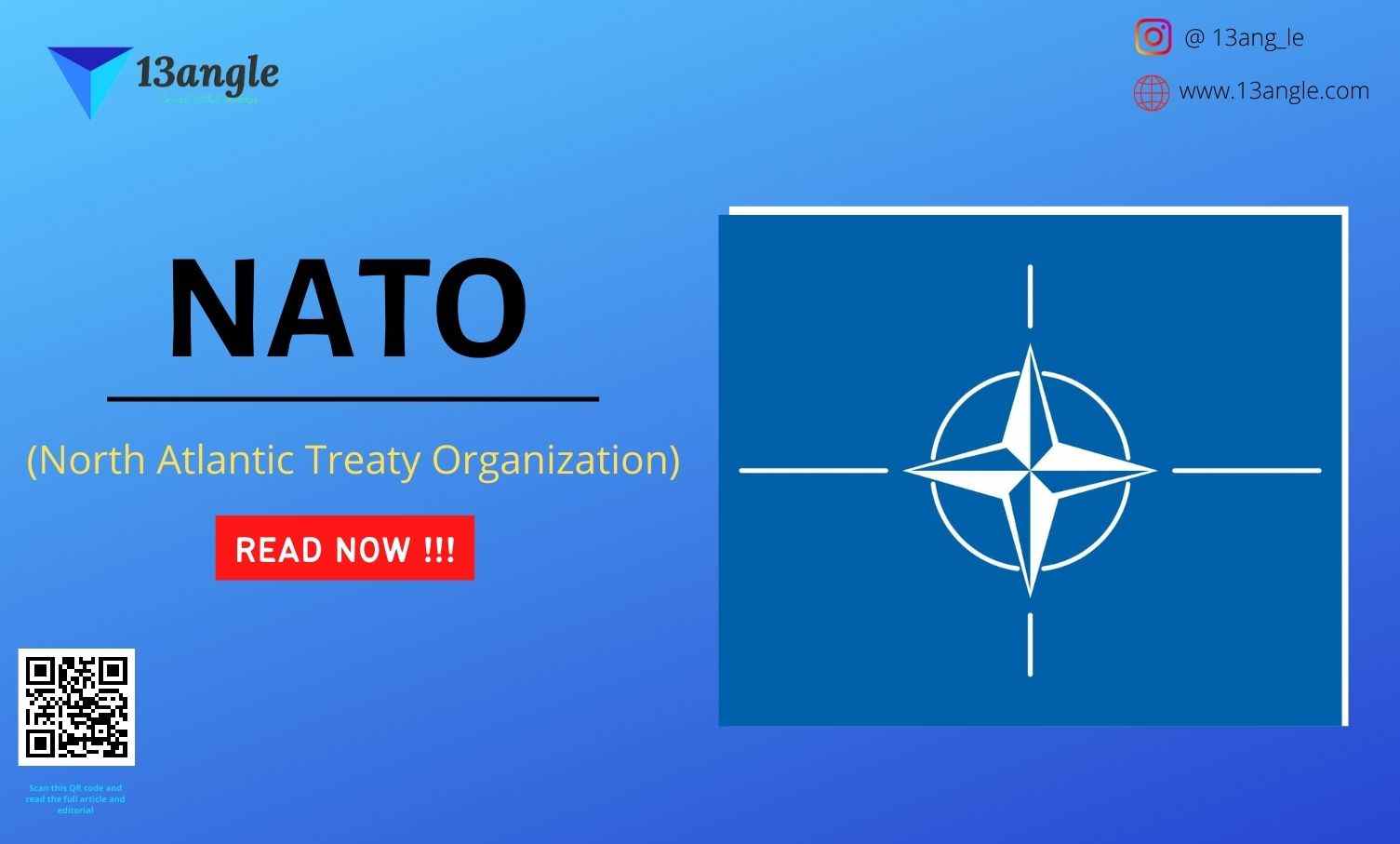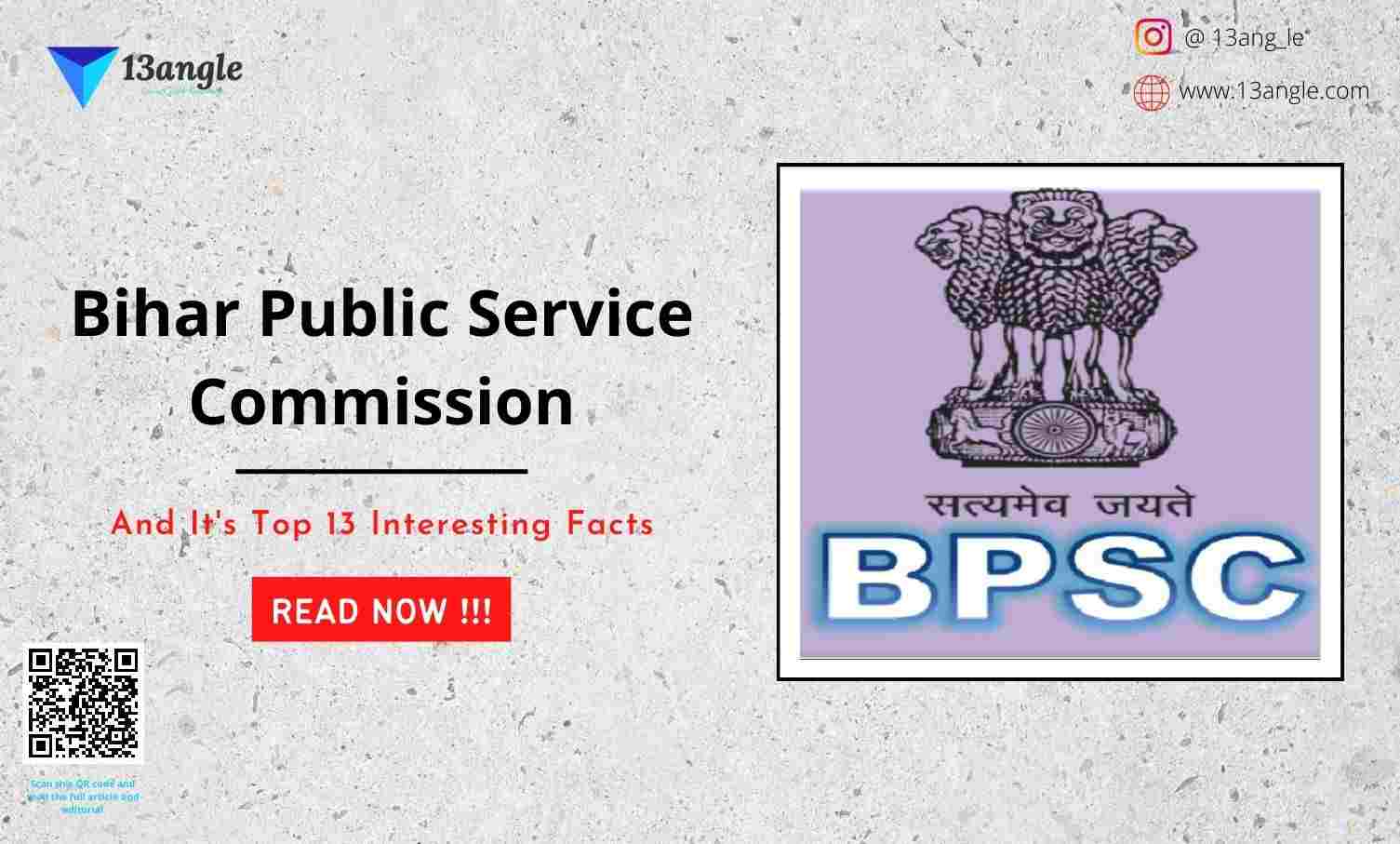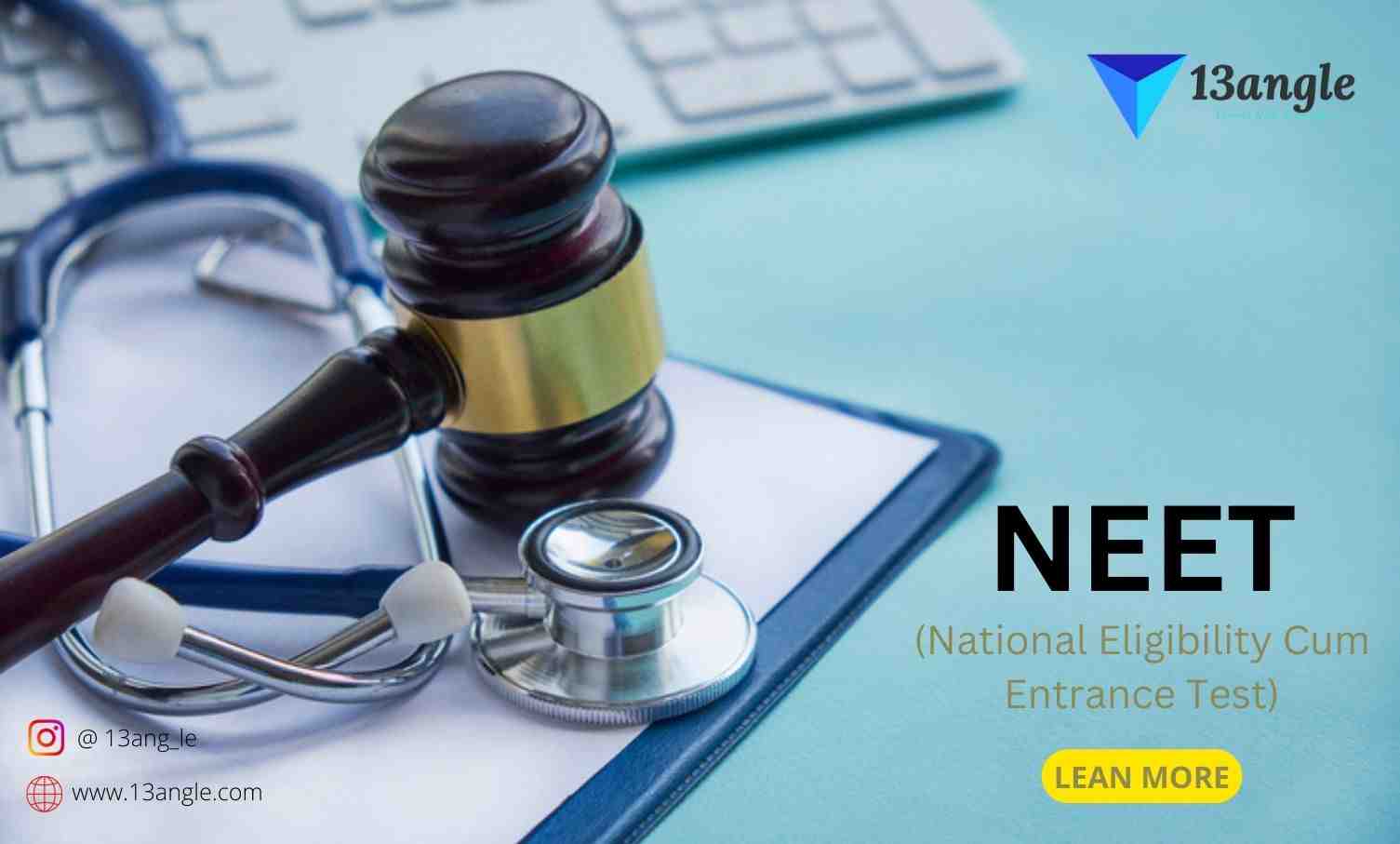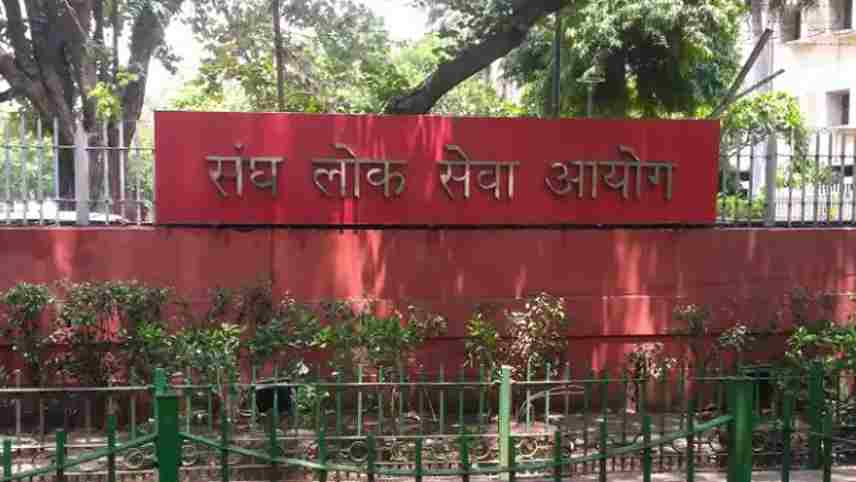
Introduction
Union Public Service Commission (UPSC) conducts Civil Services Examination to recruit candidates for various All India Services and Central Civil Services posts in various departments of the Government of India. The Civil Services Exam is also known as IAS Exam for common people.
History
In 1923, the British government established the Royal Commission on India’s Superior Civil Services (ICS), which was served as chairman by Lord Lee of Fareham. The group, which had an equal number of Indian and British members, issued its report in 1924, suggesting the establishment of a Public Service Commission. According to the Lee Commission, 40% of future entrants should be British, 40% of Indians should be directly recruited, and 20% of Indians should be promoted from the provincial services.
And This led to the establishment of the first Public Service Commission on 1 October 1926 under the chairmanship of Sir Ross Barker.
The Public Service Commission was given only a restricted consultative responsibility, and the leaders of the freedom struggle repeatedly emphasized this point, leading to the establishment of a Federal Public Service Commission under the Government of India Act 1935.
After independence, the Federal Public Service Commission has renamed as Union Public Service Commission. On January 26, 1950, it was granted constitutional status under the Indian Constitution.
Functions Of UPSC
Exams for civil service appointments are held.
The requirement is fulfilled by interviewing the candidates.
Amendment of recruitment rules for the various services and posts under the Government.
Appointment of officers on promotion/deputation/ absorption is done.
Advising the Government on any matter referred to the commission by the President of India.
Note
Points to remember are:-
- Father of all Indian civil services is Sarda Vallabhbhai Patel.
- The civil service day is celebrated on 21 April.
- Manoj Soni is chairman of the UPSC since April 5, 2022.
- The highest position in IAS is Cabinet Secretary; Rajiv Gauba is currently serving as Cabinet Secretary of India since 2019.
List Of UPSC Chairman
| No. | Name | From | To |
| 1. | Sir Ross Barker | October 1926 | August 1932 |
| 2. | Sir David Petrie | August 1932 | 1936 |
| 3. | Sir Eyre Gorden | 1937 | 1942 |
| 4. | Sir F.W. Robertson | 1942 | 1947 |
| 5. | Sh. H.K. Kripalani | 1.4.1947 | 13.1.1949 |
| 6. | Sh. R.N. Banerjee | 14.1.1949 | 9.5.1955 |
| 7. | Sh. N. Govindarajan | 10.5.1955 | 9.12.1955 |
| 8. | Sh. V.S.Hejmadi | 10.12.1955 | 9.12.1961 |
| 9. | Sh. B.N.Jha | 11.12.1961 | 22.2.1967 |
| 10. | Sh. K.R. Damle | 18.4.1967 | 2.3.1971 |
| 11. | Sh. R.C.S. Sarkar | 11.5.1971 | 1.2.1973 |
| 12. | Dr.A.R.Kidwai | 5.2.1973 | 4.2.1979 |
| 13. | Dr.M.L. Shahare | 16.2.1979 (AN) | 16.2.1985 |
| 14. | Sh. H.K.L. Capoor | 18.2.1985 | 5.3.1990 |
| 15. | Sh. J.P.Gupta | 5.3.1990 (AN) | 2.6.1992 |
| 16. | Mrs. R.M.Bathew (Kharbuli) | 23.9.1992 | 23.8.1996 |
| 17. | Sh. S.J.S. Chhatwal | 23.8.1996 (AN) | 30.9.1996 |
| 18. | Sh. J.M. Qureshi | 30.9.1996 (AN) | 11.12.1998 |
| 19. | Lt. Gen. (Retd.) Surinder Nath | 11.12.1998 (AN) | 25.6.2002 |
| 20. | Sh. P.C. Hota | 25.6.2002 (AN) | 8.9.2003 |
| 21. | Sh. Mata Prasad | 8.9.2003 (AN) | 4.1.2005 |
UPSC Civil Services Exam 2024
On February 14, 2024, the official UPSC announcement for the CSE (Civil Service Exam) was announced, UPSC CSE Prelims Exam is scheduled to be conducted on May 26, 2024, and UPSC CSE Mains Exam will be held on September 20, 2024. And then the date of the main interview will be scheduled
Those who pass all three phases of the Civil Services exam will join the country’s respected civil services as officers in the Indian Administrative Service (IAS), Indian Police Service (IPS), Indian Foreign Service (IFS), etc. Though it is considered one of the country’s most difficult exams. To crack this exam if aspirants follow the right strategy such as with the appropriate schedule, positive attitude, and proper planning then they can pass the prestigious civil services exam.
The Civil Services Exam is conducted in three phases- Preliminary, Mains, and Interview. The UPSC Prelims paper is purely a screening test to select candidates for the Mains examinations, and the interview is conducted at UPSC Bhawan, Dholpur.
UPSC CSE 2024 Important Dates
The notification for UPSC Civil Services Examination for 2024 is published on 14 February 2024. The time given for the application process for UPSC CSE 2024 was between 14 February 2024, and 05 March 2024.
- UPSC CSE 2024 Prelims: 26 May 2024
- UPSC CSE 2024 Mains: 20 September 2024 (5 days)
- UPSC CSE 2024 Interview: to be announced
- UPSC CSE 2024 Final Result: to be announced
Filling Out The UPSC Ias 2024 Application Form In Steps
Candidates can follow the processes outlined below to complete the UPSC IAS 2024 application form.
- Go to upsc.gov.in, the official website.
- Then, under the “What’s New” area, look for the link and click it.
- After that, to apply for the UPSC IAS exam 2024, use the “click here” button.
- Complete the UPSC IAS application form 2024 with all required information.
- Pay the application fee and upload the relevant documents in the format specified.
- Double-check all the information before submitting the UPSC CSE 2024 application form.
The preliminary exam for UPSC CSE 2024 will tentatively hold on May 26, 2024. The UPSC CSE admit card 2024 for the preliminary examination will be available online at upsc.gov.in.
Important Guidelines For UPSC IAS Application Form 2024
Candidates must read the instructions below before applying for the UPSC civil services test 2024.
- Carefully read the official UPSC IAS 2022 announcement.
- Carefully read the UPSC CSE 2022 eligibility criteria.
- Before submitting the UPSC IAS application form 2024, thoroughly look at the information provided.
- The dimensions of the images should be as indicated in the official booklet.
- The browser should be the most recent and up-to-date version.
UPSC CSE Syllabus
Indian Civil Services exam pattern:-
Stage I: Preliminary exam (objective type): Preliminary Civil Service Examination (Objective Type) for the selection of candidates for the Main Examination.
The first stage of the examination i.e., Civil Services Preliminary Examination is only a screening test and is conducted to shortlist the candidates for the main examination.
The Preliminary Examination consists of two objective type papers carrying a maximum of 400 marks.
Examination | Civil Services Preliminary Examination |
Number of Papers | 2 Compulsory Papers (Objective type) |
Total Marks | 400 |
Duration of Exam | 2 hours each (20 minutes per hour extra time for blind candidates and candidates with locomotor disability and cerebral palsy) |
Medium of Exam | Bilingual (Hindi & English) |
Negative Marking | 1/3rd of the marks assigned to a question |
General Studies Paper-I:
It consists of 100 questions covering the following topics carrying a maximum of 200 marks to be solved in 2 hours.
Current events of national and international importance.
History of India and Indian National Movement.
Indian and World Geography – Physical, social, and economic geography of India and the world.
Indian Polity and Governance – Constitution, Political System, Panchayati Raj, Public Policy, Rights Issues, etc.
Economic and Social Development – Sustainable Development, Poverty, Inclusion, Demography, Social Sector Initiatives, etc.
General issues on environmental ecology, biodiversity, and climate change – do not require subject expertise.
General Science – Up to 10th standard.
General Studies Paper-II:
It consists of 80 questions from the following subjects carrying a maximum of 200 marks to be solved in 2 hours.
Comprehension.
Interpersonal skills including communication skills.
Logical reasoning & analytical ability.
Decision-making & problem-solving.
General mental ability.
Basic numeracy- numbers & their relations, orders of magnitude, etc (up to Class X level), Data interpretation (charts, graphs, tables, data sufficiency, etc. – Class X level)
Stage II: Mains exam (Descriptive type):
Civil Services Main Examination (Descriptive Type) for selection of candidates for the Interview.
The Civil Services Main Examination consists of the following papers divided into 2 categories – qualifying papers and papers counted for merit.
Qualifying Papers
|
| Marks |
Paper-1 | One of the Indian languages to be chosen by the candidate from among the languages included in the Eighth Schedule of the Constitution.
Indian Languages Syllabus:
(i) Comprehension of given passages.
(ii) Precis Writing.
(iii) Usage and Vocabulary.
(iv) Short Essays.
(v) Translation from English to the Indian Language and vice-versa.
| 300 |
Paper-2 | English Language Syllabus: –
(I) Comprehension of given passages.
(ii) Precis Writing.
(iii) Usage and Vocabulary.
(iv) Short Essays.
| 300 |
Languages in the 8th schedule of the constitution |
The following 22 languages are included in the Eighth Schedule of the Constitution: Assamese, Bengali, Gujarati, Hindi, Kannada, Kashmiri, Konkani, Malayalam, Manipuri, Marathi, Nepali, Oriya, Punjabi, Sanskrit, Sindhi, Tamil, Telugu, Urdu, Bodo, Santhali, Maithili and Dogri. |
Papers To Be Counted For Merit
| Papers | Syllabus | Marks |
| Paper- I | Essay Candidates may be required to write essays on multiple topics. They will be expected to stay close to the topic of the essay, organize their thoughts systematically, and write concisely. Credit will be given for effective and accurate expression. | 250 |
| Paper-II | General Studies-I (Indian Heritage and Culture, History, and Geography of the World and Society) (i) Indian culture will cover the salient aspects of Art Forms, literature, and Architecture from ancient to modern times. (ii) Modern Indian history from about the middle of the eighteenth century until the present- significant events, personalities, issues. (iii) The Freedom Struggle — its various stages and important contributors/contributions from different parts of the country. (iv) Post-independence consolidation and reorganization within the country. (v) History of the world will include events from the 18th century such as the industrial revolution, world wars, redrawing of national boundaries, colonization, decolonization, political philosophies like communism, capitalism, socialism, etc.— their forms and effect on the society. (vi) Salient features of Indian Society, Diversity of India. (vii) Role of women and women’s organization, population and associated issues, poverty and developmental issues, urbanization, their problems, and their remedies. (viii) Effects of globalization on Indian society. (ix) Social empowerment, communalism, regionalism & secularism. (x) Salient features of the world’s physical geography. (xi) Distribution of key natural resources across the world (including South Asia and the Indian sub-continent); factors responsible for the location of primary, secondary, and tertiary sector industries in various parts of the world (including India). (xii) Important Geophysical phenomena such as earthquakes, tsunamis, Volcanic activity, cyclones, etc., geographical features and their location ranges in critical geographical features (including waterbodies and icecaps) and in flora and fauna and the effects of such changes. | 250 |
| Paper-III | General Studies-II (Governance, Constitution, Polity, Social Justice, and international relations) (i) Indian Constitution-Historical base, development, features, amendments, important provisions, and basic structure. (ii) Functions and responsibilities of the Union and the States, issues and challenges relating to the federal structure, devolution of powers and finances up to the local level, and challenges therein. (iii) Separation of powers among various organs, between dispute redressal mechanisms and institutions. (iv) Comparison of the Indian Constitutional Plan with other countries. (v) Parliament and State Legislature- Structure, functions, the conduct of business, powers and privileges, and issues arising out of them. (vi) the composition, organization, and functioning of the executive and judiciary—the ministries and departments of the Government; Pressure groups and their role in formal/informal association and politics. (vii) Salient features of the Representation of the People Act. (viii) Appointment of various constitutional posts, powers, functions, and responsibilities of various constitutional bodies. (ix) Statutory, regulatory, and various quasi-judicial bodies. (x) Government policies and interventions for development in various sectors and issues arising out of their design and implementation. (xi) Development Processes and Development Industry – Role of NGOs, Self Help Groups, various groups and associations, donors, charities, institutional and other stakeholders. (xii) welfare schemes by the Centre and the States for the weaker sections of the population and the performance of these schemes; Mechanisms, laws, institutions, and Bodies constituted for the protection and betterment of these vulnerable sections. (xiii) Issues relating to the development and management of social sector/services relating to health, education, and human resources. (xiv) Issues related to poverty and hunger. (xv) Important aspects of governance, transparency, and accountability, e-governance- applications, models, successes, limitations, and potentials; Citizens’ Charter, transparency and accountability, and institutional and other measures. (xvi) Role of civil services in a democracy. (xvii) India and its Neighbourhood- Relations. (xviii) bilateral, regional, and global groupings and agreements involving India and/or affecting the interests of India. (xix) Influence of policies and politics of developed and developing countries on the interests of India, the Indian diaspora. (xx) Important international institutions, agencies, and forums – their composition, and mandate. | 250 |
| Paper-IV | General Studies-III (Technology, Economic Development, Biodiversity, Environment, Security and Disaster Management) (i) Indian economy and issues relating to planning, mobilization, resources, growth, development, and employment. (ii) Inclusive growth and issues arising out of it. (iii) Government budget. (iv) the major crop-cropping patterns in different parts of the country, – different types of irrigation and irrigation systems for storage, transportation, and marketing of agricultural produce and issues and related constraints; E-technology to help farmers. (v) issues relating to direct and indirect agricultural subsidies and minimum support prices; Public Distribution System-Objectives, Functioning, Limitations, Reforms; issues of buffer stock and food security; technology mission; Economics of animal husbandry. (vi) Food Processing and Related Industries in India- Scope and Importance, Location, Upstream and Downstream Requirements, Supply Chain Management. (vii) Land reforms in India. (viii) Effects of liberalization on the economy, changes in industrial policy, and their effects on industrial development. (ix) Infrastructure: Energy, ports, roads, airports, railways, etc. (x) Investment model. (xi) Science and Technology- Developments and their applications and effects in daily life. (xii) achievements of Indians in science and technology; Indigenization of technology and development of new technology. (xiii) Awareness in the field of IT, Space, Computers, Robotics, Nanotechnology, Biotechnology, and issues related to Intellectual Property Rights. (xiv) Conservation, environmental pollution, and degradation, environmental impact assessment. (xv) Disaster and Disaster Management. (xvi) The relationship between the growth and spread of extremism. (xvii) Role of external state and non-state actors in creating challenges to internal security. (xviii) challenges to internal security through communication networks, the role of media and social networking sites in internal security challenges, basics of cyber security; Money laundering and its prevention. (xix) Security Challenges in Border Areas and their Management – Association of Organized Crime with Terrorism. (xx) Various security forces and agencies and their mandate. | 250 |
| Paper-V | General Studies-IV (Ethics, Integrity, and Aptitude) This paper will consist of questions to test the attitude and approach of the candidates to the issues related to their problem-solving approach to the various issues and conflicts faced by them in integrity, honesty in public life, and society. Questions can use the case study approach to determine these aspects. The following broad areas will be covered: (I) Ethics and Human Interface: Essence, determinants, and consequences of ethics in human actions; Dimensions of Ethics; Ethics – in private and public relations. Human Values - Lessons from the life and teachings of great leaders, reformers, and administrators; the role of family society and educational institutions in inculcating values. (ii) Attitude: Content, Structure, Function; its effect and relationship with thought and behaviour; ethical and political perspectives; Social influence and persuasion. (iii) Merit and core values for civil service, integrity, impartiality and non-partisanship, objectivity, devotion to public service, sympathy, tolerance, and compassion towards weaker sections. (iv) Emotional intelligence-concepts, and their utilities and applications in administration and governance. (v) Contribution of moral thinkers and philosophers of India and the world. (vi) Public/Civil Service Values and Ethics in Public Administration: Status and Problems; ethical concerns and dilemmas in government and private institutions; laws, rules, regulations, and conscience as sources of moral guidance; accountability and ethical governance; Strengthening of moral and ethical values in governance; ethical issues in international relations and funding; corporate governance. (vii) Integrity in Governance: Concept of Public Service; Philosophical basis of governance and honesty; Information sharing and transparency in government, Right to Information, Code of Conduct, Code of Conduct, Citizen’s Charter, Work Culture, Quality of Service Delivery, Use of Public Money, Challenges of Corruption. (viii) Case studies on the above issues. | 250 |
| Paper-VI | Optional Subject – Paper I | 250 |
| Paper-VII | Optional Subject – Paper II | 250 |
| Sub Total (Written Exam) | 1750 |
Optional Subject Paper I
A candidate may opt for any one Optional Subject from the following subjects:-
- Agriculture
- Animal Husbandry and Veterinary Science
- Anthropology
- Botany
- Chemistry
- Civil Engineering
- Commerce and Accountancy
- Economics
- Electrical Engineering
- Geography
- Geology
- History
- Law
- Management
- Mathematics
- Mechanical Engineering
- Medical Science
- Philosophy
- Physics
- Political Science and International Relations
- Psychology
- Public Administration
- Sociology
- Statistics
- Zoology
Optional Subject Paper II
A candidate may opt for any one Optional language Subject from the following subjects:-
- Assamese
- Bengali
- Bodo
- Dogri
- Gujarati
- Hindi
- Kannada
- Kashmiri
- Konkani
- Maithili
- Malayalam
- Manipuri
- Marathi
- Nepali
- Odia
- Punjabi
- Sanskrit
- Santhali
- Sindhi
- Tamil
- Telugu
- Urdu
- English
Each Optional Subject has 2 compulsory papers.
Stage III: Interview (Personality Test): Civil Services Interview test selects candidates for various services and posts mentioned in the official notification.
NOTE: The interview carries 275 marks.
Books That Should Not Be Neglected While Preparing Are
| S. NO | BOOK NAME | AUTHOR NAME |
| 1. | NCERT BOOKS (6th to 12th) | NCERT |
| 2. | Indian Polity | M. Laxmikanth |
| 3. | Important Acts that Transformed India | Alex Andrews George |
| 4. | Important Judgments that Transformed India | Alex Andrews George |
| 5. | Indian Art and Culture | Nitin Singhania |
| 6. | Ancient and Medieval India | Poonam Dalal Dahiya |
| 7. | Modern Indian History | Sonali Bansal and Snehil Tripathi |
| 8. | Certificate Physical and Human Geography | Goh Cheng Leong |
| 9. | Geography of India | Majid Husain |
| 10. | Oxford Student Atlas for India | Book by Oxford University |
| 11. | Indian Economy | Ramesh Singh |
| 12. | Indian Economy | Nitin Singhania |
| 13. | Science and Technology | Ravi P. Agrahari |
| 14. | Environment and Ecology | Vaishali Anand |
| 15. | International Relations | Pavneet Singh |
| 16. | Lexicon for Ethics, Integrity, and Aptitude | Niraj Kumar |
Tips To Prepare For UPSC Exams
This will also guide you on how you can crack the UPSC exam on the first attempt itself.
- Self-study:-
- Mentally and physically be ready to prepare and appear for the exam.
- If you are working/ pursuing a degree and have decided not to quit your job/ studies, then analyze and calculate your free time how you would devote time for UPSC preparation and draw a chart of plan accordingly.
- With today’s technology like the internet, it is possible to easily manage both preparation and a job.
- Make a timetable:-
- Making a timetable will make your preparation easier and more efficient. You would work better and finish the syllabus faster if you have some restrictions and deadlines so that you could stick on time.
‘If the plan doesn’t work, change the plan but not a goal’.
- Knowing the UPSC syllabus:-
- Knowing and understanding the syllabus before starting with a preparation plan is a must for any exam you are going to attempt.
- Reading newspapers and relevant magazines:-
- Reading newspapers on daily basis is to get knowledge regarding current affairs because it carries a weightage in exams.
Magazines like Yojana, Kurukshetra, Economic & Political Weekly, etc. are very important for the exams. They contain important information on topics like polity, governance, agriculture, economy, etc.
- The right choice of optional subject:-
- After analyzing the pros and cons of the subject You should always choose the right optional subjects for the exam.
Some of the factors to keep in mind before selecting an optional are: – Interest in the subject matter, Prior knowledge of the academic background, Overlap with the General Studies (GS) papers, Availability of coaching, and Availability of study materials.
- Work on your foundation:-
- Start with NCERT notes for UPSC. Download the relevant titles from the official website of NCERT for free.
- Mainly make your notes and follow them regularly.
- Practice Answer Writing + Revision:-
- Start practicing answer writing once you are done with 60-70% of the UPSC syllabus from the standard books.
- Keep your weekends free for a dedicated revision of whatever you’ve learned in the past week.
- Practice mock-tests:-
- Try for an actual exam-like mock test and then analyze your performance.
- Check your weak areas and brush up on the important concepts that require revision.
List Of UPSC Exams
Civil Service Examination (CSE).
Engineering Services Examination (ESE).
Central Armed Police Forces Examination (CAPF).
Combined Defence Services (CDS).
Indian Economic Service and Indian Statistical Service (IES/ISS).
Indian Forestry Services Examination (IFoS).
Combined Geo-Scientist and GeologistsExamination (CGSE).
Indian Cost Accounts Service Examination (ICoAS)
Combined Medical Services (CMS).
Special Class Railway Apprentices (SCRA).
More Details About Civil Service Examinations
| Name of Exam | Date of Notification | Date of Examination | Last day for Application | Duration of Exam |
| Civil Service Examination (CSE): Preliminary test Mains exam | 02/02/2022 | 05/06/2022 September 16, 2022, onwards | 22/2/2022 | One day 1 week |
| Engineering Services Examination (ESE) | 22/9/2021 | 20/02/2022 | 12/10/2021 | One day |
| Central Armed Police Forces Examination (CAPF) | 20/04/22 | 07/08/2022 | 10/05/2022 | One day |
| Combined Defence Services (CDS) | 22/12/2021 | 10/04/2022 | 11/01/2022 | One day |
| Indian Economic Service and Indian Statistical Service (IES/ISS) Preliminary test Mains exam | 06/04/2022 | 24/04/2022 | 26/04/22 | Three days |
| Indian Forestry Services Examination (IFoS) Preliminary test Mains exam | 02/02/2022 | 05/06/2022 October 20-29, 2022 | 22/02/2022 | One day 10 days |
| Combined Geo-Scientist and Geologists Examination (CGSE) | 22/09/2021 | 20/02/2022 | 12/10/2021 | One day |
| Combined Medical Services (CMS) | 06/04/2022 | 17/07/2022 | 26/04/2022 | One day |
Types Of Civil Services In India
1. All India services:-
- Indian Administrative Service (IAS)
- Indian Forest Service (IFoS)
- Indian Police Service (IPS)
2. Central civil services:-
Group A
- Indian Foreign Service (IFS)
- Central Secretariat Service(CSS)
- Indian Audit and Accounts Service (IAAS)
- Indian Corporate Law Service (ICLS)
- Indian Defence Accounts Service (IDAS)
- Indian Information Service (IIS)
- Indian Postal Service (IPoS)
- Indian Revenue Service (IRS)
- Indian Trade Service (ITS)
- Indian Railway Traffic Service (IRTS)
- Indian Railway Accounts Service(IRAS)
- Indian Railway Personnel Service(IRPS)
- Railway Protection Force (RPF)
- Indian Statistical Service(ISS)
- Indian Economic Service(IES)
- Indian Civil Accounts Service(ICAS)
- Central Labour Service (CLS)
Group B
- Armed Forces Headquarters Civil Services (AFHQCS)
- Central Excise Service
- Defence Secretariat Service
- Customs Appraisers Service
- Delhi, Andaman & Nicobar Islands, Lakshadweep, Daman & Diu and Dadra & Nagar Haveli Civil Service (DANIAS), Grade II
- Delhi, Andaman & Nicobar Islands, Lakshadweep, Daman & Diu and Dadra & Nagar Haveli Police Service (DANIPS), Grade II
- Income Tax Service
- Postal Superintendents service
- Postmasters Service
- Railway Board Secretariat Service
- Telegraphs Traffic Service
Promotional Ladder, Postings And Pay Scales Of All India Services Officers
(Indian Administrative Services)
| Grade/ Scale (Level on pay Matrix) | Field Postings | Position in State Government | Position in the Government of India | Pay Scale |
| Junior time scale (Pay level 10) | Sub-District Magistrate | Under Secretary | Assistant secretary | ₹56,100 (US$740)—₹132,000 (US$1,700) |
| Senior time scale (Pay level 11) | Additional District Magistrate | Deputy secretary | Under Secretary | ₹67,700 (US$890)—₹160,000 (US$2,100) |
| Junior administrative grade (Pay level 12) | District magistrate | Joint secretary | Deputy secretary | ₹78,800 (US$1,000)—₹191,500 (US$2,500) |
| Selection grade (Pay level 13) | District magistrate | Special secretary-cum-director[ | Director | ₹118,500 (US$1,600)—₹214,100 (US$2,800) |
| Senior administrative grade (above super time scale) (Pay level 14) | Divisional commissioner | Secretary-cum-commissioner | Joint secretary | ₹144,200 (US$1,900)—₹218,200 (US$2,900) |
| Higher administrative grade (above super time scale) (Pay level 15) | Divisional commissioner | Principal secretary | Additional secretary | ₹182,200 (US$2,400)—₹224,100 (US$2,900) |
| Apex scale (Pay level 17) | ————– | Chief secretary | Secretary | ₹225,000 (US$3,000) |
| Cabinet Secretary grade (Pay level 18) | ————– | ——————– | Cabinet Secretary | ₹250,000 (US$3,300) (PPP$11,700) |
(Indian Police Services)
| Grade/ Scale (Level on pay Matrix) | Position in State Government | Position in the Government of India | Pay Scale |
| Junior time scale (Pay level 10) | Assistant Superintendent of Police/ Deputy Superintendent of Police | Assistant commissioner of police in Delhi. | ₹56,100 (US$740)—₹132,000 (US$1,700) |
| Senior time scale (Pay level 11) | Additional Superintendent of Police | Additional deputy commissioner of police in Delhi. | ₹67,700 (US$890)—₹160,000 (US$2,100) |
| Junior administrative grade (Pay level 12) | Superintendent of Police | Deputy commissioner of police in Delhi. | ₹78,800 (US$1,000)—₹191,500 (US$2,500) |
| Selection grade (Pay level 13) | Senior Superintendent of Police (selection grade) | Deputy commissioner of police in Delhi. | ₹118,500 (US$1,600)—₹214,100 (US$2,800) |
| Super time scale (DIG/Conservator grade) (pay level 13A) | Deputy Inspector General of Police | · Additional Commissioner, city police, in Delhi, Gujarat, Maharashtra, Odisha, Rajasthan · Joint Commissioner, city police, in West Bengal, Tamil Nadu, Karnataka, Haryana · Commissioner of police (city police commissionerate) · Deputy inspector general in CAPFs · Deputy inspector general in NIA · Deputy Director in IB · Deputy Inspector General in CBI · Deputy Director in SVPNPA. | ₹131,100 (US$1,700)—₹216,600 (US$2,800) |
| Senior administrative grade (above super time scale) (Pay level 14) | Inspector General of Police | · Joint Commissioner, city police, in Delhi, Gujarat, Maharashtra · Additional Commissioner, city police, in Kolkata, Chennai, Bangalore · Commissioner of police (city police commissionerate) · Inspector General in CAPFs · Inspector General in NIA · Joint Director in IB · Joint Director in CBI · Joint Director in SVPNPA. | ₹144,200 (US$1,900)—₹218,200 (US$2,900) |
| Higher administrative grade (above super time scale) (Pay level 15) | Additional Director General of Police / Director General | · Special Director General in CAPFs · Special Secretary (Internal Security), Ministry of Home Affairs · Special Secretary in Research and Analysis Wing · Special Director in IB · Special Director in CBI · Director of Sardar Vallabhbhai Patel National Police Academy (SVPNPA) · Director General of Bureau of Police Research and Development · Director General of Narcotics Control Bureau | ₹182,200 (US$2,400)—₹224,100 (US$2,900) |
| Apex scale (Pay level 17) | Director General of Police (Head of State Police Force) | · Director of the Intelligence Bureau (IB) · Director of Central Bureau of Investigation (CBI) · Director-General of National Investigation Agency (NIA) · Commissioner of Police of Delhi · Commissioner of Police of Mumbai · Director General of a Central Armed Police Forces (CAPF) | ₹225,000 (US$3,000) |
| Cabinet Secretary grade (Pay level 18) | Secretary (R), Secretary (Security) in the Cabinet Secretariat. |
(Indian Forest Services)
| Grade/ Scale (Level on pay Matrix) | Position in State Government | Pay Scale |
| Junior time scale (Pay level 10) | Assistant Conservator of Forests (ACF/ AFO) | ₹56,100 (US$740)—₹132,000 (US$1,700) |
| Senior time scale (Pay level 11) | Deputy Conservator of Forests (DCF/ DFO) | ₹67,700 (US$890)—₹160,000 (US$2,100) |
| Junior administrative grade (Pay level 12) | Conservator of Forests | ₹78,800 (US$1,000)—₹191,500 (US$2,500) |
| Selection grade (Pay level 13) | Chief Conservator of Forests | ₹118,500 (US$1,600)—₹214,100 (US$2,800) |
| Senior administrative grade (above super time scale) (Pay level 14) | Additional Principal Chief Conservator of Forests | ₹144,200 (US$1,900)—₹218,200 (US$2,900) |
| Higher administrative grade (above super time scale) (Pay level 15) | Principal Chief Conservator of Forests | ₹182,200 (US$2,400)—₹224,100 (US$2,900) |
| Apex scale (Pay level 17) | Principal Chief Conservator of Forests (Head of Forestry) / Head of Forest Force (HoFF) | ₹225,000 (US$3,000) |
The rank and post are different in Central Deputation. They are listed below:
- Assistant Inspector General of Forests (AIGF)
- Deputy Inspector General of Forests (DIGF)
- Inspector General of Forests (IGF)
- Additional Director General of Forests (ADGF)
- Director-General of Forests (DGF)
NOTE: The Director-General of Forests (DGF) is the Special Secretary to the Government of India, Ministry of Environment, Forest, and Climate Change.
Promotional Ladder, Postings And Pay Scales Of Indian Foreign Service Officers (Central Civil Services)
| Grade | (When posted in MEA) | Designation in Embassy (Overseas) | Salary (in Rs) |
| Junior time scale (Pay level 10) | Under secretary | Attaché / Third Secretary | ₹56,100 (US$740)—₹132,000 (US$1,700) |
| Senior time scale (Pay level 11) | Under secretary | Second Secretary | ₹67,700 (US$890)—₹160,000 (US$2,100) |
| Junior administrative grade (Pay level 12) | Deputy secretary | First Secretary | ₹78,800 (US$1,000)—₹191,500 (US$2,500) |
| Selection grade (Pay level 13) | Counsellor / Director | Director | ₹118,500 (US$1,600)—₹214,100 (US$2,800) |
| Senior administrative grade (above super time scale) (Pay level 14) | Joint secretary | Minister/ Deputy Chief of Mission / Ambassador | ₹144,200 (US$1,900)—₹218,200 (US$2,900) |
| Higher administrative grade (above super time scale) (Pay level 15) | Additional secretary | Ambassador/ High Commissioner | ₹182,200 (US$2,400)—₹224,100 (US$2,900) |
| Apex scale (Pay level 17) | secretary | Ambassador/ High Commissioner | ₹225,000 (US$3,000) |
NOTE: – Indian Foreign Service officers are also entitled to foreign allowances (which may vary from country to country) when posted abroad.
Motivation
“The achievements show a remarkable success story that began with effort and determination”
Choosing the right mentor plays an important role
Here in this graph, we can analyze how the preparation goes with/without guidance. So, choosing the correct mentor is very important.
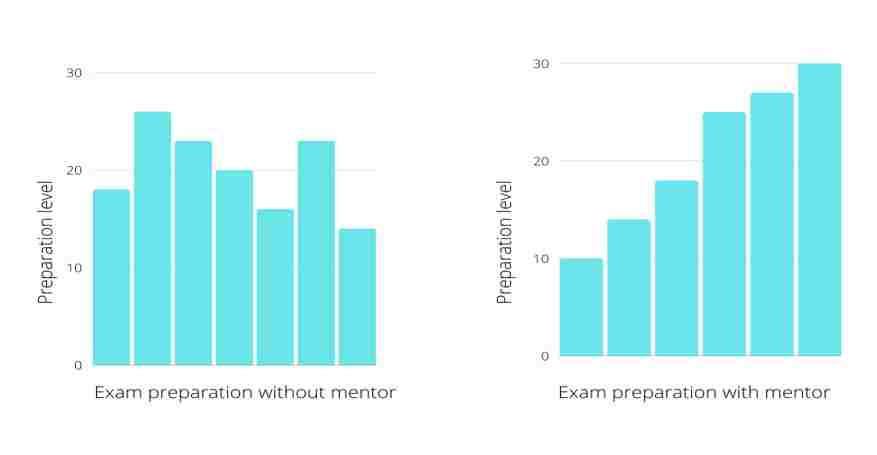
Connecting A Plant With UPSC Aspirant

Step 1:-
Break the dormancy: – How do we soak the seeds to break the dormancy likewise, the Aspirants must soak their minds with knowledge to break the mind into many pieces to store the knowledge in every piece of mind separately i.e., Academics, family, current affairs, learning new things, social networking, friends, social work, social services, etc concerning every field.
Step 2:-
Seed sprouting: – After breaking the dormancy of the seeds, the seeds will sprout, which means after gaining the knowledge, the knowledge will improve and develop their skills and their implementation whenever needed and by gaining knowledge by reading books.
Step 3:-
Seed germination: – Hence the germination of seeds happens, which means getting experienced in how to implement the things and how to solve the problems hands-on and understanding the UPSC exams.
Step 4:-
Transplantation into the field: – Now the seedlings are ready for transplantation into the field, which means the aspirant is now qualified with the degree and eligible to give the UPSC exam with his/her field of interest.
Step 5:-
Stages of growth: – After all the hurdles, the plants will undergo many different growth stages and then they will enter the flowering and fruiting stages, likewise the aspirant will crack the exam and then move further.
Step 6:-
Intercultural operations: – Intercultural operations will be done in the field to eliminate unwanted things and extra distractions will be thrown out of the field, in the same manner “if the aspirant could not qualify in the first attempt there is always a second chance, rather than following the myths, the aspirant can improve his/her skills and again approach the exam with little more efforts, dedication and with full of motivation and also with so much of positive energy.
Every person can crack it by continuously updating the knowledge regarding current affairs, etc.
Intercultural operations like:-
- Hoeing: – Aspirants should break all the myths regarding the exam and discard all the trash present and try it next time. So that the aspirant can focus and crack the exam.
- Irrigation: – Feed the mind with knowledge, do not buy every material available in the market, just focus on your own best notes, choose the best coach, and update with current issues is must.
- Application of fertilizers: A good study plan is a must; a very effective and flexible schedule should be prepared, and a step-by-step exam preparation strategy should be followed.
Step 7
Harvest: – Finally the harvesting stage will arrive, here the aspirant will qualify with the exam with lots of effort and practice for the interview, and he/she will give the mock interviews and then move on to the main interview of UPSC.
Step 8
Post-harvest: – At this stage finally the big dream of UPSC (IAS, IPS, IFS, etc) is achieved.
Moral: – The main motto is to sow the seeds of knowledge/ skill and then harvest the fruits of goal/dream.
Some Movies And Web Series Which Can Inspire You For Civil Service
- Tejaswini (1994)
- Sarfarosh (1999)
- Gangaajal (2003),
- Sehar (2005),
- Rang de Basanti (2006),
- Abhimanyu (2006),
- Wanted (2009),
- Jai Gangaajail(2016),
- Shadi me jarur aana
- Shalini I.A.S (2017),
- Arjun Singh I.P.S (2019),
- Konda polam (2021),
- BharathaSindhuri (2021),
- Nil Batti Sannata,
- Dhruva
- Salute
- Satyadev – the fearless cop
- Sammy
- UPSC Aspirants (web series)
Top 13 Interesting Facts Regarding UPSC
UPSC is one of the constitutional bodies.
The procedure of civil service started 100 years ago.
UPSC syllabus encompasses various subjects, aspirants can appear for several exams.
The qualification rate for this exam is 07% when applied and 0.157% from prelims.
Aspirants from any educational background can appear for the exam.
The entrants who passed graduation are eligible for this exam
The minimum age to appear for an exam is 21 years. The eligible candidates should be between 21 and 32 years of age (the relaxation provided for reserved categories only).
Mentorship plays an important role in your preparation strategy for the exam.
One of the most important facts about this exam is that MBBS students can appear for this exam in their final year or during their internship.
This exam is for the recruitment of 24 civil services and posts, including Indian Foreign Service, Indian Police Service, Indian Forest Service, Indian Revenue Service, Central Armed Police Force, etc.
The candidates can choose Optional for Mains from the number of options.
The most important fact about UPSC is they ask the factual questions, but to crack this exam is to tackle the factual and conceptual questions.
Civil service exams are also held in India by the various State Public Service Commissions for recruitment to state services. The State PSC Exams are modeled after the UPSC Civil Services Examination. From the notice of the preliminary test to the announcement of the results, the complete procedure of the Indian civil services examination takes around a year.

For deep details, you can read the full article. & Editorial Click the link below :



